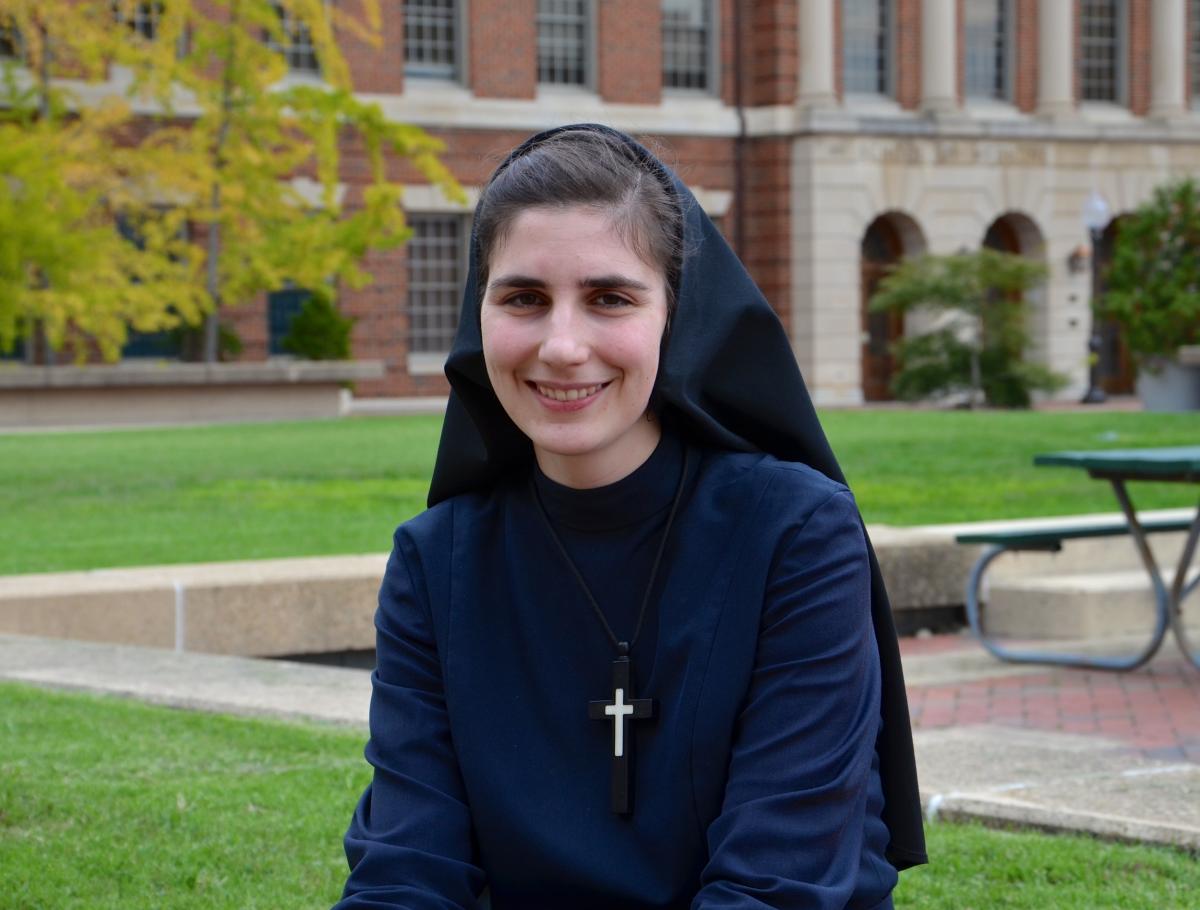Symposium Drives Connections Between Big Data and Precision Medicine

Posted in GUMC Stories
 Sister Grace Miriam Usala (M’16) sits squarely at the intersection of two related –- but still somewhat disconnected –- fields.
Sister Grace Miriam Usala (M’16) sits squarely at the intersection of two related –- but still somewhat disconnected –- fields.
A medical student at Georgetown University School of Medicine, Usala is also simultaneously pursuing her master’s degree in systems medicine through a unique joint MD/MS program offered at Georgetown.
Through this two-year-old program, Usala is immersing herself for an entire academic year in the informatics-driven and computational side of medicine – in other words, in learning how to make sense of massive quantities of patient data in a way that will actually make a difference in patient care. It is a new paradigm, to be sure, and Usala readily admits she is not quite sure how this convergence will play out in her medical career.
Seeking more information, perspective and clarity, Usala eagerly attended the 2nd Annual Biomedical Informatics Symposium on “Big Data in Precision Medicine,” an all-day event held at Georgetown University Oct. 11 that convened the leading thinkers in the fields of genomics, informatics and computational analysis.
Igniting New Collaborations
The Innovation Center for Biomedical Informatics (ICBI), part of Georgetown University Medical Center, hosted the event, which drew nearly 250 people. ICBI is an academic hub for research in the field of data science to facilitate a more individualized approach to health care — or what has come to be known as precision medicine.
The rich and varied content included two prominent keynote speakers: Stephen Friend, MD, PhD, president of Seattle-based Sage Bionetworks, and Eric Hoffman, PhD, director of the Research Center for Genetic Medicine at Children’s National Medical Center in Washington.
“Our main mission was to bring together, not just people from our Georgetown community, but from an array of institutions to hopefully ignite new ideas and collaborations,” said ICBI Director Subha Madhavan, PhD, who is also a professor at Georgetown Lombardi Comprehensive Cancer Center and head of the cancer center’s clinical informatics group.
“If you look around this room, you will see physicians, bench researchers and technologists; typically we would bring these teams together only for specific projects,” Madhavan said. “But I find it very inspiring to have them in one place for a day so we can collectively think about creative and novel solutions [to data problems] that are outside our individual fields.”
This year’s symposium drew about 100 more people than last year’s — a fact Madhavan attributes to a slow but steady groundswell of interest in the intersection of medicine and informatics.
Bridging the Divide
Usala said this type of conference helps her understand how the practice of medicine is already incorporating bioinformatics in the patient care and clinical research and visualize how it might look if the clinical and informatics communities were more harmoniously integrated.
“As someone just starting in medicine, I think about how to be of service. I know I want to be with patients — I am not interested in a tenure track [in informatics] — however I am looking for ways that this information can be applied to a future clinical practice,” she said.
Usala said hearing from experts at an event such as that organized by ICBI gives her hope that bridging the divide between these two great fields may be more within reach than she realized.
“While it will take a while for all this to be translated into clinical practice, it is essential that we seek out the clinical relevance of this. I think such [events] as this are important stepping blocks,” she said.
By Lauren Wolkoff, GUMC Communications
(Published October 17, 2013)
